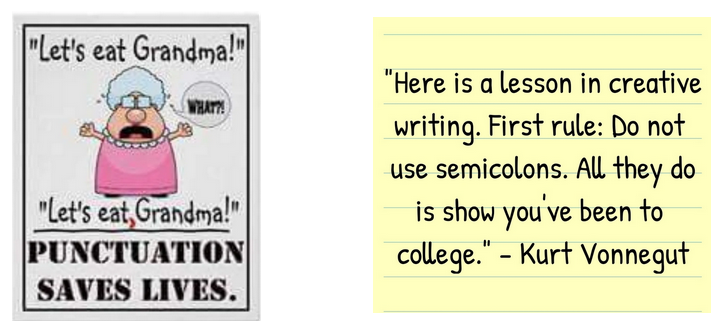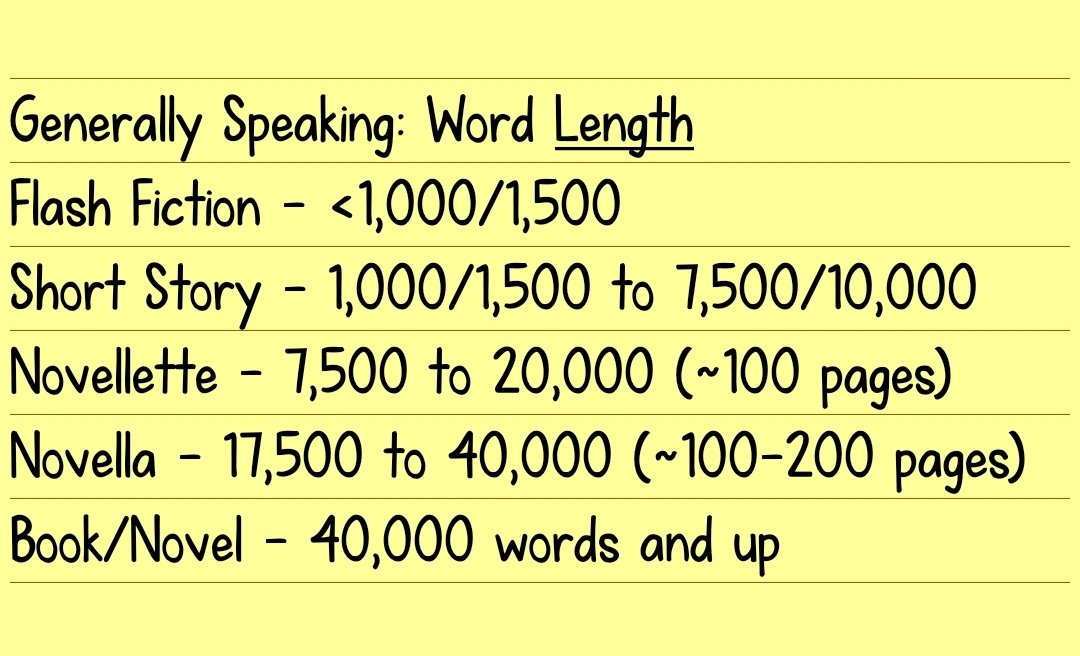[Author’s Note: This bit of Cold War-era post-apocalyptic science fiction previously won the Carl H. Carlson Award for Best Short Story.]
The Lady sat at her desk, intent upon the work before her. Outside of her office, the ice-cold winds blew the poisoned dust through the afternoon blackness. Only the building walls stopped the wind from freezing the bare skin of her face. But even inside, she needed to wear a thick coat, hat, and gloves. She had another coat and scarf resting on the back of a nearby chair. Whenever she went out, she wore them over the coat and clothes that she already had on. Compared to the outside cold, the office seemed rather warm, but the summertime frost continued to fight its way deeper and deeper into the room. The Lady had thought about having the few windows in her office boarded up to help keep out the cold, since there was nothing to look at outside, anyway — now that what had once been the deepest blackness of night had become the brightest light of mid-day. But the Lady had thought that boarding up the windows would only be a symbol to the people of her city that she was shutting out the harsh realities of life after the Great Death, and she felt that it was her responsibility to stay both symbolically and literally open to raw facts.
She was staring down at a list. Her head was in her hands as she tried to decide who would have to die so that the city could live. She saw the answer to the problem, but she kept averting her eyes from the names of the people she knew — names that would never again be on the list for sacrifices.
The door opened suddenly, and the NatGuard Comm burst into the room. The Lady turned away from her unpleasant duties and forced a cheerful tone as she addressed him, ancient traces of a British accent occasionally pushing through her now Americanized English.
“Hayyuh, Leftent, what’s the matter?”
“Forgive me for disturbing you, Your Ladyship,” he said, “but there are some strange men at the city gate. They’re armed and say they’re in charge of the city.”
“Sounds to me like someone should explain the laws of Nusiddy to ’em.” The Lady stood up and began to put on her outer coat.
“We’ve tried, Ma’m, but they won’t give up their weapons.”
“How many are there?”
“From what the different Posts can see, there’s only ten. They’re armed to the teeth. Every one of ’em has three guns or more.”
“How many killed on our side?” she asked gravely.
“None,” replied the NatGuard Comm. “They haven’t fired a shot.”
“Ten men? They haven’t shot anybody and they wanna take over the city? That’s… that’s… ridiculous!”
“Your Ladyship,” the NatGuard Comm said gravely, “they’re Eastern Soldiers.”
“Ah, crikers!” The Lady said under her breath as she quickly threw herself out the door.

Two NatGuard escorts were waiting for them as they hurried out of the building. The Lady was far ahead of the NatGuard Comm, and he had to run to keep up with her fast walk. As the Lady’s short legs stretched to their limit, her ancient sneakers somehow allowed her to keep her footing on the sheet of ice that people used as a road. The beam from the NatGuard Comm’s huge flashlight jumped back and forth across the blackness in front of them as they hurried past the few buildings between the Lady’s office and the city’s Main Gate.
Ahead of them, spotlights fought to shine through the ebony of noon and onto the men outside the gate. The Lady couldn’t have seen the light very easily had she looked up from the ground, since the blackness quickly smothered any light that tried to escape. Only when the light was almost on top of her did she notice it.
She looked through the Main Gate, which was actually just a small doorway, and she saw the ten men standing directly under the spotlight. Their clothes were so dirty and worn that they could barely be recognized as uniforms at all. The dirt and obvious wear was not limited to the clothes, but it also covered the men themselves. The little bits of their faces that were exposed to the deadly weather blended in with the filthy rags and remnants of uniforms that were rapped around them. Each of them held a rifle or a machine gun, and each of them had more than one extra gun at his side. The guns they carried were quite varied in appearance, and even the Lady, with her limited knowledge of weaponry, could recognize them all as American made. What intrigued the Lady most was that she couldn’t see any ammunition anywhere on them. While she would have expected to see some strapped across their shoulders or around their waists where it could be easily accessed in the case of a gunfight, there was none to see.
She smiled at them through the opening of the doorway. At first, her smile was like one a mother wears when she is very amused by her children, but she quickly changed it to a friendly, diplomatic smile.
“Hayyuh, Gentlemen,” she said. “Welcome to our little piece of civilization. I’m the organizer of this place and these people. This place’s called Nusiddy and I’m the Lady in Charge. C’n I ask who you all are?”
Without hesitating, one of the men took a stop away from the rest and bowed.
“How do you do?” he said, his voice filled with a gentle Slavic accent. “I am called Lieutenant Vladimir Parchenko, and this is Commander Tarkoff.” He motioned to a very rigid man standing just to his right and a bit behind him.
“How d’ you do?” The Lady had to call the words out from deep within her memory before she could get her mouth to say them. She fought to keep her wits about her and continued.
“I dunno if any of the NatGuards ‘ve told you, but the laws of Nusiddy strictly forbid anyone who is not a NatGuard or a Hunter from carrying weapons while inside the city. You can come in, but not with your guns or any other weapons that you may have. That includes bows-and-arrows, knives, and any other kind of blades. In order to enter the city, you have to leave your weapons with the GateGuards. You have my word that anything the GateGuards take will be given back to you in the same condition you turned it over, if you decide to leave the city fer good.”
There was a long awkward silence as the Lady waited for a reply to her speech. After the silence seemed to last too long, the Lady asked slowly, “Did you understand what I just said?”
The Lieutenant smiled kindly. “I understood everything you said. But I think that you are the one that does not understand. We now are the law of this city. I am…” He paused, as if searching for a word. “I am honored to be able to say that this city is now ruled by the people. In the name of the Eastern Republics and their allies, I say to you that..all people now here are free from the capitalist and imperialist forces which have been keeping them…prisoner these many years.”
“If it’s a choice of being ruled by capitalism and imperialism or neo-commie crapola—” one GateGuard began, but the Lady forcefully interrupted him.
“You say that this city is now ruled by the people. I’m afraid you’ll have t’ wait so that you can make that official. Everybody will have t’ be told that you’re freeing them from capitalistic imperialism. Then they can vote on whether or not they want you to free them.”
Parchenko was no longer smiling. “Do not change what I say! I hope you know that we have enough guns to kill you and all of your…NatGuards, too. I do not think that these people can make the right choice, since they have probably been told lies and made to believe them, even after your people began this insanity with your bombs.”
One of the GateGuards drew a rusty Ginsu kitchen knife from its makeshift scabbard on his belt. “We started this? You bombed us first, you black-marketeering bastard!”
He was furious and ready to single-handedly take on all ten men at the door, but the Lady held him back with only her voice.
“No!” she said quietly. “No one really knows who pushed the button first. Besides, there’s been ‘nough fighting.”
She turned her attention back to the Lieutenant. “If you had ‘nough amm’nition, you’d ‘ve done more than just stand outside the door trying t’ look pretty. The way I figger it, you’re either here for food, or you’re tryin’ t’ take us over t’ get revenge. As for your government, I don’t think they sent you. ‘Cause if by some chance there still is some kind of country over there that has some kind of government, I don’t think they’d send out a couple of handfuls of obviously starvin’ men, especially when those men could only scare the enemy and not do any real fightin’. I have t’ admit, I never thought much of your Republics or their allies, but even they have t’ know better than t’ try a stupid stunt like this. Now, I dunno ’bout you felluhs, but the warmest part uh me right now is just as cold as the air outside. You all may have on the kinds of clothes that can keep you warm, but I doubt even the warmest clothes can easily argue with takin’ this discussion inside.”
“That is a good idea, madam.” The Lieutenant motioned to the other soldiers and they started to walk into the city. But the Lady and her NatGuard stood between them and the door, and they had barely taken a few steps when the Lady threw her left hand high up toward the spotlights and held it frozen in midair.
Each soldier was suddenly the target of a dozen NatGuards. A handful of the NatGuards were ones that the soldiers had been able to see, but many more had stayed out of sight and pulled out whatever weapons they had in reply to the Lady’s signal. Some had guns, and others had long knives that served as swords, but most had bows with arrows cocked and ready to fight their way through the frozen winds. A few NatGuards were near the Lady, but more had surrounded the visitors.
Now the Lady smiled broadly. This time, she didn’t seem to try to hide her amusement. The Easterners had played out their hand and lost. Now she was almost certain to win. The soldiers had pulled such an awful and obvious bluff that she was positive they wouldn’t see through her own ruse. She smiled even wider as the soldiers were starting to show their fear. Even their Commander seemed to have been taken completely be surprise.
She kept her gloved hand motionless in the air. “I just have t’ throw my hand back down and my NatGuards will open fire on all uh you. You won’t even have time t’ try an’ fight back. So you’ll all step through this door one at a time and hand over any weapons you have t’ the NatGuards inside. And when I say ‘weapons’, I don’t just mean guns, but knives, thick sticks, and anything else you could use t’ fight. You’ll then be asked t’ take off all your clothes and put on things you’re given. Once you’re inside, if you cooperate, you’ll be treated like welcome visitors and not prisoners.”
“We will freeze if we undress!” one of the soldiers objected, but was interrupted by the Lieutenant.
“And if we do not do as you say we will be killed, eh?”
“Really, Ivan, you are a smart one…for a Blocker.” The Lady pulled her scarf off of her head, so that only her neck was covered. Her eyes were still hidden by a strange pair of goggles that were made of one-way reflective plastic. Her goggles made her appear inhuman, like a walking dead woman or a robot without a soul. Since her eyes could not be seen, each soldier could believe that she was looking directly at him. They all gazed nervously back at her.
“My name is not Ivan,” he replied. “None of these men are named Ivan.”
“A Slav by any other name…” the Lady said. The NatGuard Comm smirked as she continued. “I don’t give a damn. All I know is that it’s too damn cold out here t’ stand around arguing with Blockers. I’m going inside. You’ll do what my people tell you — no matter what. If you’re good little boys, I might even feed you.”
She turned around sharply and left. Her steps were strong and certain and she never glanced back at the soldiers. After the City Door had been closed behind her, the Lady quickly made her way to the top of one of the buildings that served as a watchtower. Every muscle in her face was tight, and her face was suddenly very serious as she watched the soldiers hand over their weapons and enter the bottom of the watchtower one by one. She saw them again as they stepped out the other side, slouched low with their heads hung toward the ground. She never took her eyes away from them until the last of them had been quickly escorted deep into the living darkness within the City’s walls.
After only a few of the soldiers had disappeared into the tower, a nearby NatGuard said, “It’s about time we got ’em! Now we can give ’em back some uh the misery they gave us.”
“How’s ’bout makin’ ’em our slaves?” said another enthusiastically.
“Yeah!” the first one replied, his voice full of bitter anger. “That’s sure what they deserve.”
“How ’bout you, yer Ladyship?” inquired a third. “What you plannin’ on doin’ with ’em?”
The Lady stood silent for a few moments until all the soldiers had left into the darkness, then replied, “I know you’re probably expecting me to cheer, but I don’t feel too much like cheering right now. In fact, I don’t feel much like anything.”
The NatGuards quickly sobered up.
“But what ‘re yuh gonna do t’em?” the third asked.
“What I have t’ do,” she replied, her voice weak and sad.
They all stood silent for a short time. Then, as the wind seemed to blow even stronger and colder, the Lady turned to face them. All hints of sadness and regret were gone. Her body was rigid again, and her hands were once more clasped together behind her back. She stood like a military officer would have stood had the eyes of his men been inspecting his every move. The tilt of her head showed that her gaze was fixed on a spot far above the heads of the three NatGuards. Her lips were pressed tightly together. When she parted them to speak again, the men could all see her lips turn red as blood returned to them once more.
“I’ll do what I have t’ do,” she repeated, this time with more strength in her voice. “And what I have t’ do is make sure that we survive.” She lowered her head. To the men, it seemed as if she were not only looking at them, but straight through them, as well. “Keep a good eye on ’em. They may act dumb, but I’m not willing t’ take any chances that they’re just acting.”
For a while, the goggles had hidden the fact that she had been crying, but as the tears escaped their cover and began to flow down her chin, she quickly walked out of the tower without wiping them away. She kept her head straight back until she was out of the NatGuards’ sight. Then she let herself slump and deeply sobbed. She walked so slowly that she was almost standing still. Her feet seemed to constantly stumble and she felt her way along the wall and into an alley. There, she began to run. The Lady had not gotten far when she doubled over and threw up.
For a long time she just stood there, bent over and holding on to her stomach. Close behind her, near the entrance to the alleyway, a NatGuard appeared. He did nothing to help her or even let her know that he was there; he merely stood silently until a citizen showed up and tried to see what was happening. Menacingly, the NatGuard explained to the hapless bystander that she wouldn’t miss anything important if she left right away. The citizen reluctantly went, but only after the NatGuard told her it was just another citizen with RadDeath.
Finally, when the Lady had stopped heaving and gagging, the NatGuard came closer and stood next to her. He offered her his scarf so she could wipe her mouth, but the Lady refused.
“No thanks,” she said. “I’ve got my own.”
She wiped her mouth with one end of her scarf, and her forehead with the other. When she took off her goggles, the NatGuard politely turned his gaze away from her dark, sunken eyes.
“I’m not sure if it’s the RadDeath or my disgust at what I’m doing that makes me barf,” she said. “If it’s the RadDeath then I’ll welcome it.”
The NatGuard didn’t answer. He couldn’t be sure if she had been talking to him or to herself.
The Lady put her goggles back on. “Come on!” she snapped at him. She walked out of the alley as if nothing had happened.
Silently, the NatGuard followed her.
As she sat at the head of the biggest table in the city, the Lady merely watched the soldiers eat. They looked pitiful, like a bunch of starving dogs with their tales between their legs. They slouched and didn’t look up at anything. If the Blockers hadn’t been wolfing down their food as quickly as they couldn, she might have thought they were all sulking.
The Lady could only push the food on her plate around. Even though it had been more than a full day since she had thrown up, she still felt sick. Parchenko looked up and noticed that she had not eaten anything. He gaped at her.
“Is meat so…so…ordinary here that you can waste it?” he asked with amazement.
“No,” the Lady replied. “If I don’t eat this then it’ll be given t’ somebody else.”
“But…but why do you not eat? Are you not hungry? Byog! If only I could remember what it is like to have a full stomach!”
“My stomach isn’t full. I’ve been sick lately.”
The visitors that were closest to her moved as far away from her as possible. “Chumyah!” said on of the soldiers under his breath.
“What is it?…What did he say?”
“Madam,” Parchenko said coldly. “It is…horrible of you to do this to us. No matter what our people did to your people, it is horrible of you to do this to us.”
“What?” she exclaimed, now thoroughly bewildered.
“Do not think that we are fools. You are trying to give us your plague.”
“There’re no plagues in this city. I’ve done everything in my power t’ make sure uh that. It’s just RadDeath.”
“RadDeath?” Now it was Parchenko’s turn to be puzzled.
“It used to be called ‘radiation sickness,’ but now we just call it RadDeath,” she answered calmly.
Parchenko’s voice was surprisingly soft and kind as he said, “You talk so easily about this RadDeath.”
“Some wise person once said that ‘Death is the fate of us all.’ “
“Da,” said Parchenko, “but do you not want to keep living so that you can pass on your knowledge to the children? Do you not want to fight death for the sake of those to come, so that they may have a better life?”
“Lieutenant, I’m sorry t’ hear that you think about future generations.”
“Sorry? Why are you sorry? I do not understand.”
“I guess you don’t know…Ever since the bombs dropped, any children that are born are badly retarded or deformed. Any children that they might possibly have someday are sure t’ be even more horribly deformed than they are and probably won’t live t’ see a first birthday.” She paused, letting it sink in. “So yuh see, Lieutenant, there are no future generations.”
Once more they all sat silently. On the faces of some of the soldiers there was anger, and on others there was pain, but most of the soldiers didn’t seem to care. They sat like this for a long time, until Parchenko once more broke the silence. His voice was cracked, as if he had been crying.
“Why do you feed us, then? Why even…be as kind to us as you have?…Why go on at all?”
The Lady didn’t answer, and just dropped her gaze to her plate.
“Pocheh’my?” Parchenko almost screamed with hysteria. “Why?”
“My friend, I have often asked myself that very same question. As for me, I know that there are some people who wanna keep on living, and they need me t’ help them survive.”
“And us?…My friends and I? You think these people need us, too, so that they can live?”
The Lady’s response was almost inaudible. “Yes.”
“So, we must live whether we want to or not?”
Before she replied, the Lady quietly waved to one of the NatGuards standing at the door and held up most of her fingers. “You don’t have t’ live so they can live. You can if you want, but you don’t have to.”
“I do not want to live for them.” Parchenko was openly weeping as he spoke. “I only want to live if there is hope…If there is no hope then I do not want to live… If there is no hope then I do not want to live…If there is…I do not want…I do not…” His voice faded into deep sobs.
“Then you don’t have t’ live.” The Lady spoke quietly and then lifted her head and spoke louder. Her voice was strong again, but occasionally cracked. “Carve him up.”
Before anyone could say anything, a small group of NatGuards rushed through the door and surrounded Parchenko. They grabbed him and carried him out the door. Some of the other soldiers jumped to their feet, but most stayed seated. The eyes of the men who hadn’t gotten up were still chronically empty.
“Carve them up, too,” the Lady ordered. “But keep them alive until we need ’em, then be sure to do ’em like animal meat. Nobody should have t’ think about what they’re eating. I don’t want what happened a couple uh weeks ago t’ happen again.”
Suddenly, she stood up and left the room. The NatGuard Comm started after her, but stopped before he had gotten very far. The sound of the Lady’s dry heaving echoed through the hallway and into the dining room, so he turned back to take charge of the prisoners.
“She is sick in her head like she is sick in her belly!” yelled one of the soldiers while he was being led away. “You are all sick in your heads!”
One of the NatGuards took an old table leg from where it hung on his belt and smacked it across the objector’s head. The soldier went limp and his blonde hair was soon reddened with blood. The NatGuard started dragging him out just as the Lady was coming back into the room.
“Why’d yuh do that?” she asked the NatGuard with the table leg. “He was right.”
A few of the NatGuards stared at her with polite disapproval.
“Besides,” she said, catching herself, “he could’ve been killed and then we’d have t’ carve him up. That’d leave us with too much meat for the next couple of days.”
The NatGuard Comm was about to reply, when a large piece of the wall blew inward, letting the frozen gusts of the evening shoot through the room unhindered.
“Close that up!” the NatGuard Comm had to yell to be heard over the howling of the deadly wind.
The Lady stood silent and stiff, while her once-young face was bombarded with snowflakes that hit like bullets.
As the NatGuards tried to cover up the gaping hole in the wall, the Lady talked unnoticed to herself.
“Leave it open. It’s warmer out there than it is in here.”
But the NatGuards kept working, too busy with survival to hear her.

If you enjoyed this blog, please remember to “Like” it (click on the star below) and to “Like” any social media posts/comments where you saw this link. And don’t forget to “Follow” me here on WordPress, for more helpful and concise writing tips. Your positive feedback helps me to help more people online.
Thank you!






















